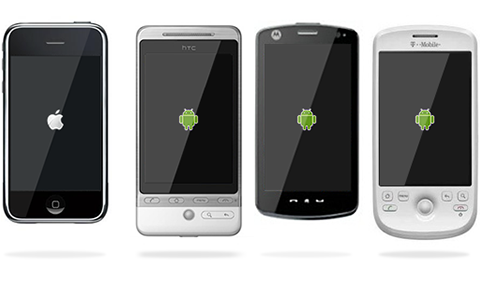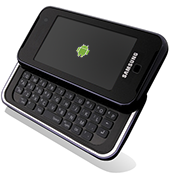The coming OS Wars
 Monday, August 3, 2009 at 3:54AM
Monday, August 3, 2009 at 3:54AM 
When, in the late 80s, Apple saw a need for a suite of business software for their new Macintosh platform, they decided to subcontract the development to a software company named Microsoft. The RFP was for three applications: a word processor, a spreadsheet and a slideshow for business presentations. Much like their IBM deal for DOS, Microsoft proposed to develop the apps but retain ownership for a good deal less money than selling it to Apple outright. In 1989 Microsoft released Office for the Macintosh, containing Word, Excel and PowerPoint. A year later, they introduced the same package for their own OS, Windows. While Apple made a premium product with a proprietary OS, Microsoft developed their Windows OS with similar Mac like graphical interface features, built to run on the same x86 (PC compatible) architecture that had made their MS DOS the default industry standard… and now running the same suite of business software available on the Mac. This story will, of course, be common knowledge to most readers as it is among the most famous business parables in modern corporate history.
And history is known to repeat itself.
With the iPhone, Apple today reigns supreme. Just as the introduction of the Macintosh did to the personal computer market in 1984, the iPhone has single handedly reshaped the mobile phone market since its introduction. But things are about to get ugly.
In January 2007 Steve Jobs introduced the iPhone. Within months, before the iPhone was even available for purchase, rumors had already begun to swirl that Google was in overdrive to develop a touchscreen mobile OS, but built on an open standard that could run on many different handsets. In spite of official denials, by fall photos of prototypes were beginning to leak. Initially slow to get traction, over the  next several months multiple vendors will be introducing new models, and Google Android clones are about to flood the market.
next several months multiple vendors will be introducing new models, and Google Android clones are about to flood the market.
Motorola, once a dominant force in mobile phones, has lost so much market share it may abandon the mobile market all together. It is betting the farm on Android. Or as Tal Liani put it, “Motorola has one bullet left in its gun.” Just a few years ago the Motorola razor was the top selling phone on the planet, and pwned its competitors in design awards as well. How quickly the mighty can fall.
The future is unwritten, and betting against Apple doesn’t look like a winner’s strategy. But then neither does betting against Google. One thing is for certain. The writing is on the wall, and Apple and Google are on a collision course in the mobile market that is about to look very familiar.
 Android,
Android,  Apple,
Apple,  Google,
Google,  iPhone,
iPhone,  smartphone in
smartphone in  Business,
Business,  Technology
Technology 
Reader Comments